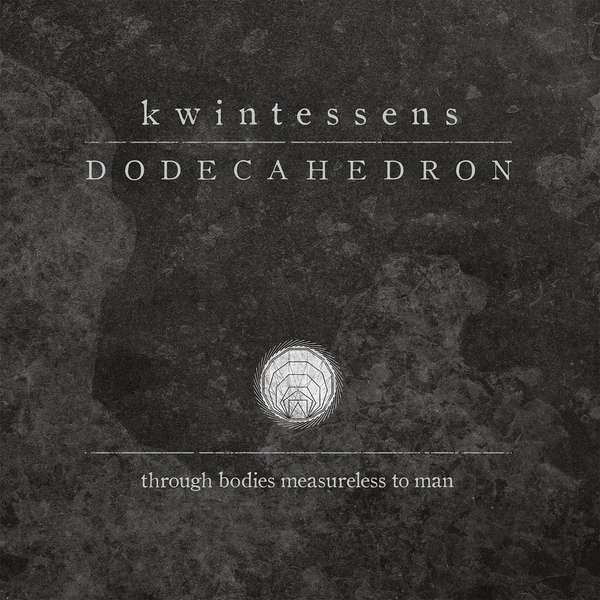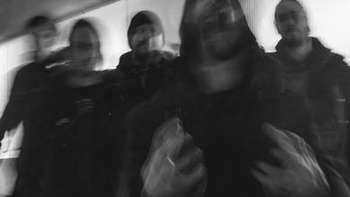The word quintessence derives from the Latin “quintus” and the english “essence,” translated roughly to the fifth essence. The reason for the number appearing in this instance comes from medieval philosophy, where quintessence was considered to be the fifth addition to the four classical elements (earth, wind, fire and water,) one that exists in the heavenly bodies, and is inherent, but dormant in all matter. It was named aether by Aristotle many years before, and even today the term is used to name a hypothetical form of dark energy in physics, one that can be considered the fifth fundamental force in the universe. For Dodecaherdon this attribute (Kwintessens) becomes an existential, cosmic element, one that defines their ideas and visions, one that propels them to push the boundaries of extreme sound.
It is a strange and curious concept, but again Dodecahedron is not your standard black metal band. That much has been shown in their debut album, a devastating assault of avant-black metal, filled with a relentless animosity. Considering that it was also released at a time when the law of the land appeared to post-black metal and blackgaze, Dodecahedron added a counterweight for a different interpretation of experimentation in extreme music. Unfortunately, as quickly as they appeared in 2012, unleashing their chaotic assault, with the same hastiness they went back into obscurity, not to be heard until five years later.
Listening to the resulting album, presumambly five years in the works, the band went through a prolonged period of introspection, trying to figure out what their next step would be, musically and thematically, but also through a process of self-improvement, with the most obvious area being the production itself. Although capturing their raw tone in the debut, which correlated with Dodecahedron's energy, the recording/mixing did some injustice when it came to the richness and depth of the compositions. Even though the production helm is still under the control of band member J.Bonis, the result is much clearer, and well refined, bringing out the technical affinity, and the grindcore-like intensity, which runs through their veins.
The world of Dodecahedron is thick and multi-layered, their musical dexterity and vitality creates a complex structure, but it is the additional flourishes that provide a terrifying insight to their capabilities. The main attribute that is astounding here is the level of theatricality the album can accommodate, without the use of classical instruments or neo-classical implementations, just with notions that might be simple, in tribal drumming and ritualistic recitals, but effective. Usually the theatrical element comes with a degree of frivolity, but this is completely avoided in this instance. Stretching further as noise is injected through the parts, drones explore the space, psychedelic renditions are repeated as mantras and minimal horror-like ambiances are unearthed, Dodecahedron provide a bitter interpretation of the dramaturgical, in a thrilling and intense fashion.
The driving force of this work is its concept, one that Dodecahedron has been planning and working on for a while now, an interest that has seemingly become an obsession. The title of the tracks, as the name of the band itself, are derived from the platonic objects, which Plato believed to be the basis of the classical elements. From the flames of “Tetrahedron,” to the rigidity of “Hexahedron” and the typhonic nature of “Octahedron” the band explores its abrupt and abusive forms, while with “Dodecahedron,” the element that Plato believed to represent the universe itself, Aristotle's aether or the theoretical type of dark energy, they explore further out, the cosmic disorder they created, only to finish off with “Icosahedron” and the ultimate descent into a state of liquid nonexistence. The fact that dimensions are added as the record progresses is not coincidental, as the concepts and works become more abstract and elusive, Dodecahedron undergo a process of transformation and growth. Taking into consideration how much the band has progressed since their debut, and what they achieved with Kwintessens it is difficult not to think of Shakespeare's quote from Coriolanus about the titular character: “This Coriolanus is grown from man to dragon: he has wings; he's more than a creeping thing.” In the same manner, Dodecahedron is no more a creeping thing, Kwintessens has allowed them to grow wings.





